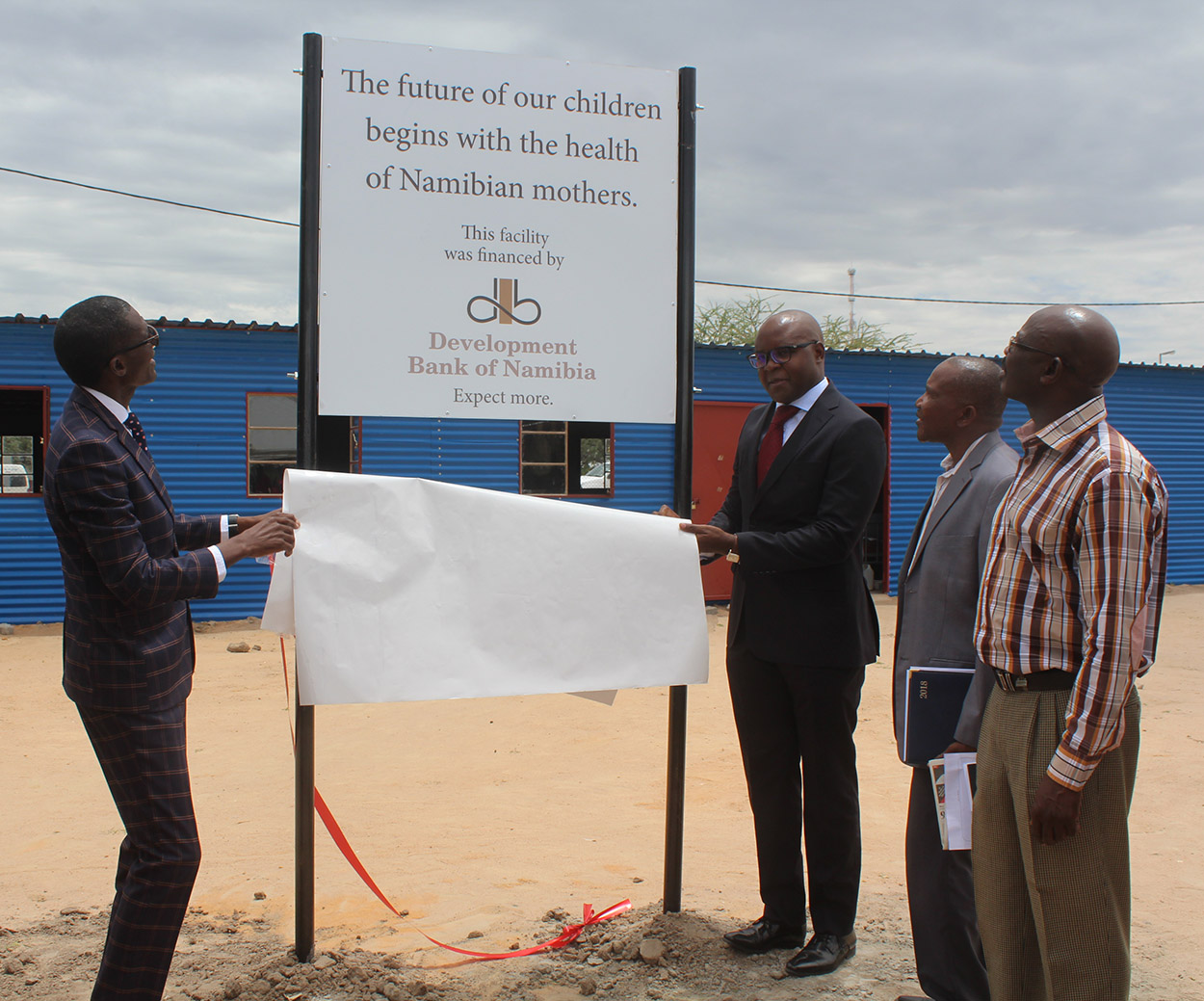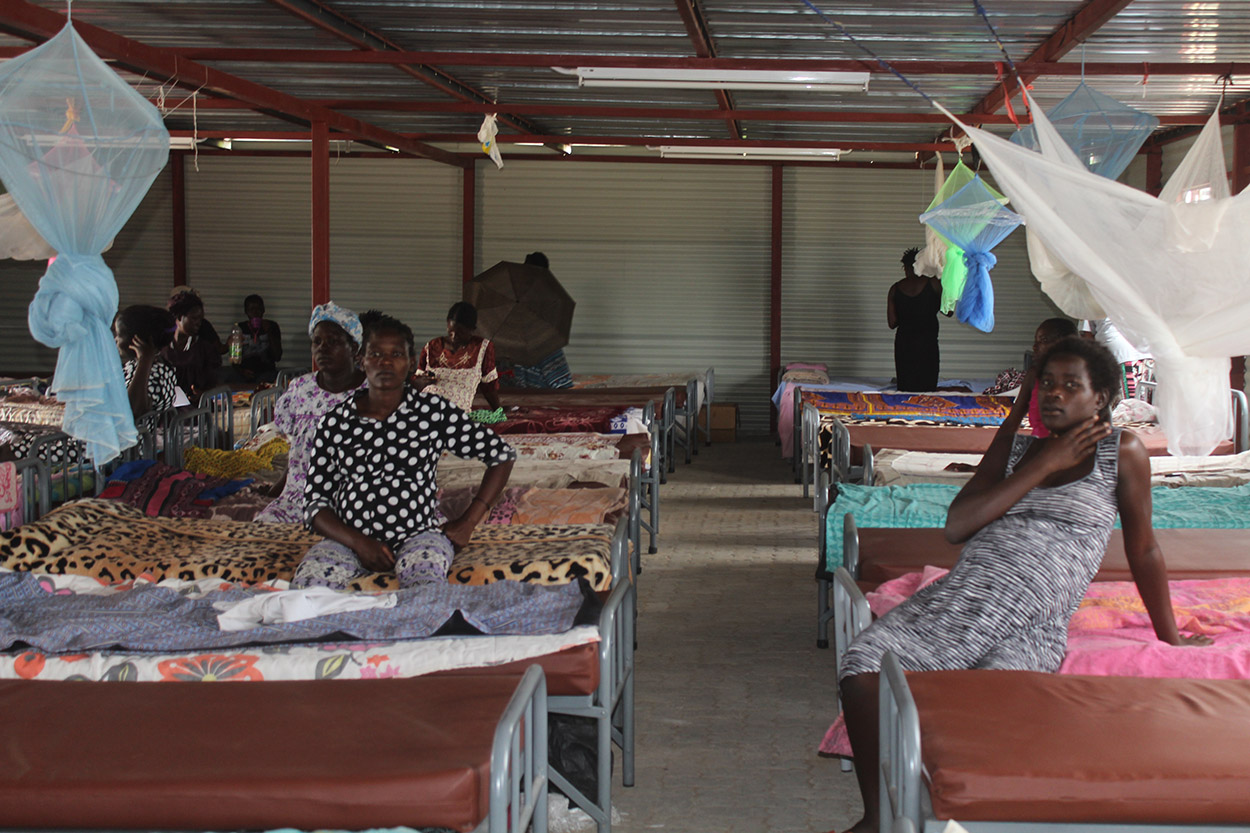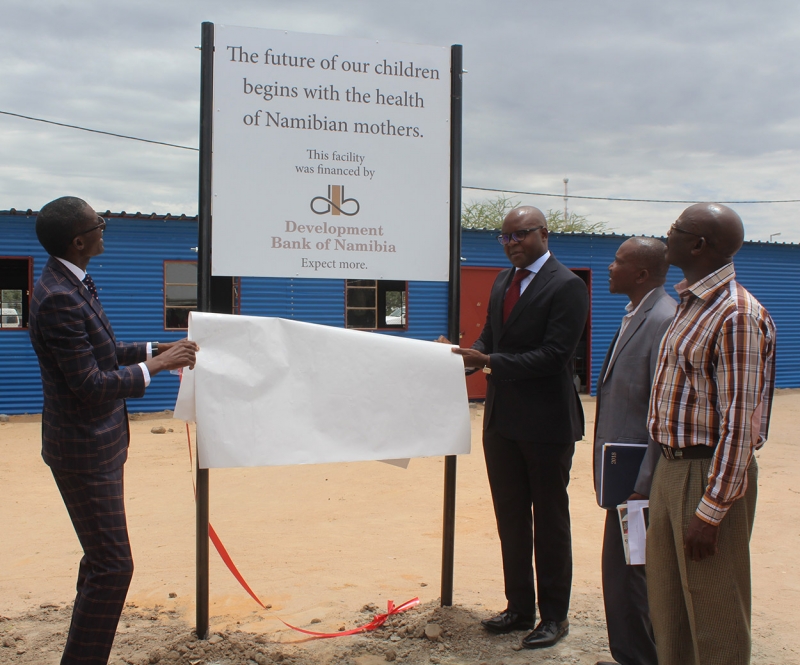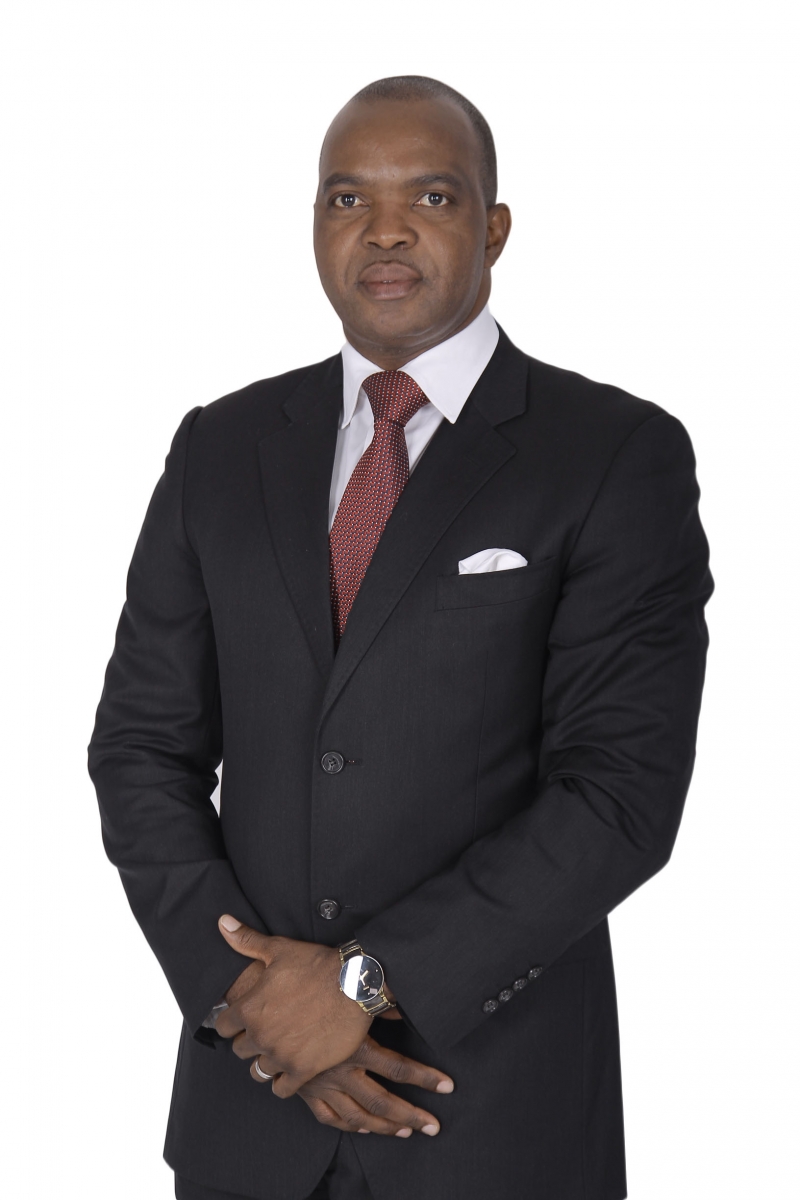 Call 061 290 8000
Call 061 290 8000 Click to mail us
Click to mail us FAQs
FAQs

CEO Martin Inkumbi pledges DBN support and respect for the women of Namibia
The Development Bank of Namibia (DBN) has provided accommodation facilities for expecting mothers visiting Outapi State Hospital in the Omusati Region. Valued at more than N$300,000, the facility alleviates the need for shelter for women who cannot afford accommodation when visiting the hospital for prenatal health services and care. Previously, some women seeking prenatal care slept in tents or on the ground, under trees.
 |
 |
Handing over the facility to the hospital, Inkumbi said that Namibia’s future is built on mothers and their care for their children and families. The Bank recognizes that maternal health is a pillar on which the future relies. To this end, the Bank made the donation to construct the facility.
Inkumbi went on to say, DBN also supports needy communicates through its CSI intervention, albeit under limited budget. The Bank’s CSI Policy has multiple targets, defined by specific fields in which the Bank seeks to make targeted interventions. These are poverty alleviation, development of education, skills development, care for the environment, community health, and activities that materially improve the business environment.
Firstly, Inkumbi said, the Bank encourages economic participation on the part of women. The Bank encourages women-led enterprises through its drive to transform the economy with finance. He added that the Bank measures approval of finance for women, and uses its figures as a benchmark for its effect. He encouraged women entrepreneurs and women-led enterprises to approach DBN with their business plans.
Secondly, Inkumbi said, the Bank treats women on its payroll equally, and with respect. As a matter of fact, women are more than men in the Bank and he added that more than half of DBN’s senior management team are women.
Thirdly, Inkumbi said, the Bank supports women through its CSI Policy, of which the Outapi facility is an example.
Inkumbi concluded by saying that women play an invaluable role in all facets of life in Namibia, and that the Bank should be seen as an enabling agency for their socio-economic development.
The Development Bank of Namibia (DBN), has developed a range of products to support the construction industry, says Senior Manager: Corporate Communications, Jerome Mutumba.
Motivating the Bank’s interest in the sector, he says that all economic development will directly or indirectly require construction, typically early in the lifespan of an economic initiative. To illustrate this, he sketches the scenario of a developing town. In order for the town to have inhabitants, housing must be constructed. To make those households sustainable, infrastructure must be constructed. The same applies to commercial infrastructure which is needed to sustain operations and employment.
Still on the topic of employment, Mutumba says that ongoing employment is a prerequisite for development, and although the sector produces a number of permanent jobs, it produces cycles of temporary employment. This form of job creation injects cash into the economy through the consumption that it enables, as well as providing temporary relief for families and individuals.
In light of the sector as a central hub of good development impact, Mutumba says that support to construction is one of the Bank’s natural fields of activity.
The Bank’s range of products, Mutumba says, is the optimum mix to support construction. Products are geared for both PPPs and local authorities, engaged in development of infrastructure, vehicle and asset financing in terms of which moveable assets including vehicles are financed by the Bank through instalment sale agreements (ISAs), and term loans. Contract based finance is available to support tenders. Performance guarantees can also be provided.
Mutumba adds that the Bank has a sound track record of finance for servicing land, as well as residential units, in regions across Namibia. The Bank does however require that enterprises that are constructing business premises such as offices, factories and warehouses should apply directly to the Bank, as the final beneficiaries, rather than contractors.
The Development Bank of Namibia (DBN) has set the record straight that it has no plans to transform into a commercial banking institution or fully take over the mandate of the now liquidated SME bank. This comes after the Bank published an expression of interest for the provision of a core-banking system which ignited speculation that DBN might be on a transformative phase.
The Bank’s senior communications manager, Jerome Mutumba confirmed that the need for a core-banking system arose as a matter of improving the bank’s systems.
“DBN has no intention of evolving into a commercial bank. The core banking system has nothing to do really with whether you want to become a commercial bank or a development finance institution or anything. Most organisations have an IT system that they use and I think you have heard of SAP for example. It’s a very common one. It cuts across industries, most businesses actually use it,” he said.
DBN has been utilising the SAP model and a review carried out on the system brought the Bank to identify the need for software that takes care of all gaps that are pertinent to its core-needs without introducing any further costs.
“So what happens is that you look at the nature of your business then you look at the IT system that you have, whether it has models that takes care of the core functions that you want. So when you identify that there are some gaps and limitations, you go out into the market and see if there is a system that more or less can give us a tailor-made model of what we are actually looking for,” said Mutumba.
DBN is currently sourcing a core banking system that has the following features, core banking foundation, customer relationship management, loans management, financial management and information management.
“If you look at the features that we are sourcing, there is nothing that has to do with deposit taking or anything like that. So even if we can use a system that the commercial bank is using, we will not use those models that the commercial bank uses when they are taking deposits, ATMs or anything like that because we do not do those”
“We only stick to those models that are relevant to us, loan book management and other stuff that we are actually looking at. That we are turning into a commercial bank is out of the picture. And those comments that we saw people making, sometimes people want to lead a conversation that they do not necessarily understand. The tender is very clear, it says we are looking for those particular models,” he emphasised.
He added, “The SME Bank was a fully fledged commercial bank while the DBN is a development finance institution. It does not have a commercial banking license. It is not regulated by the central bank, SME Bank was regulated by the central bank because it was taking.”
Transforming into a fully-fledged commercial bank goes beyond merely changing IT systems into fundamentally changing the law that speaks to its mandate, Mutumba said. “DBN has a mandate that is drawn by law so in order for us to become a commercial bank we need to change the law and take it away from the space of a development finance institution,” he said.





